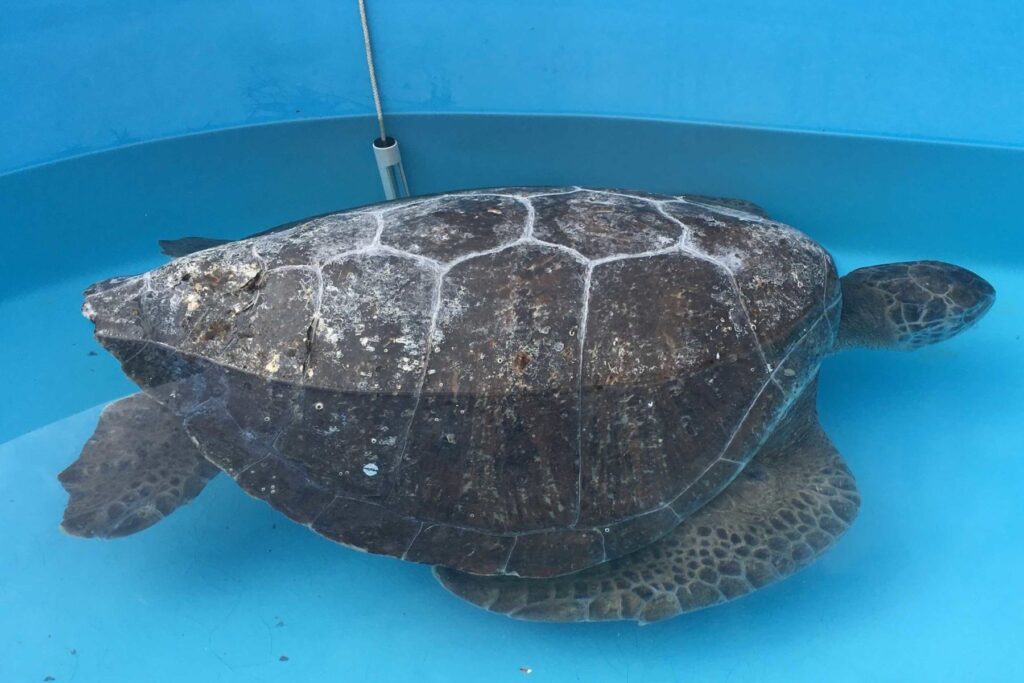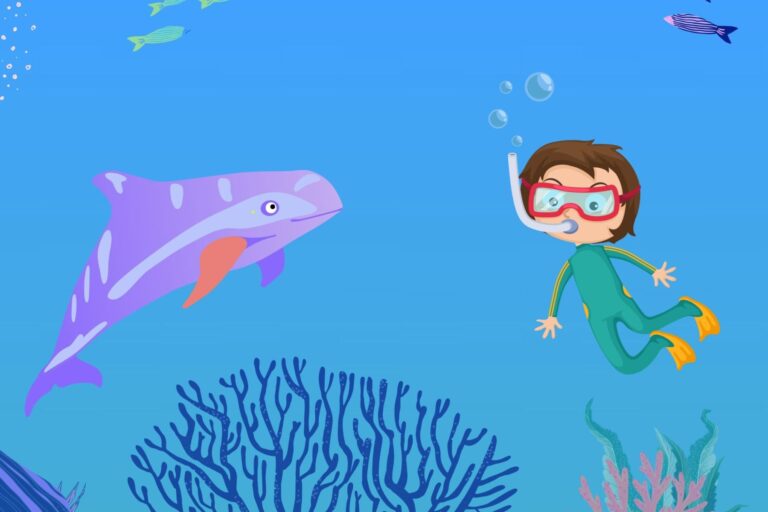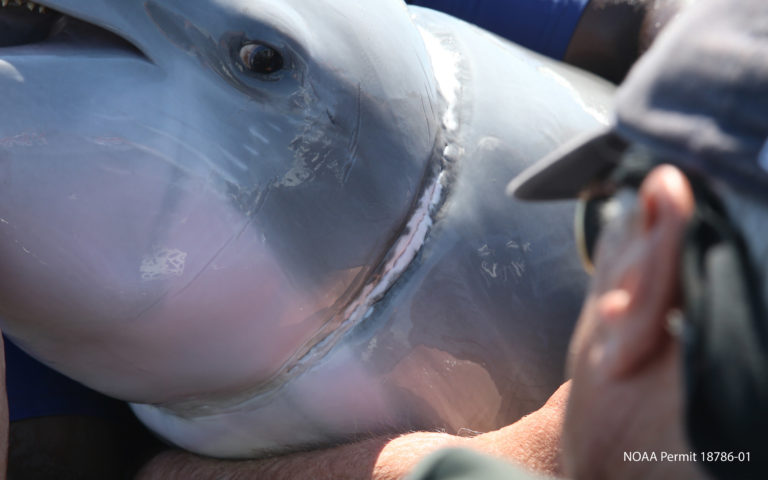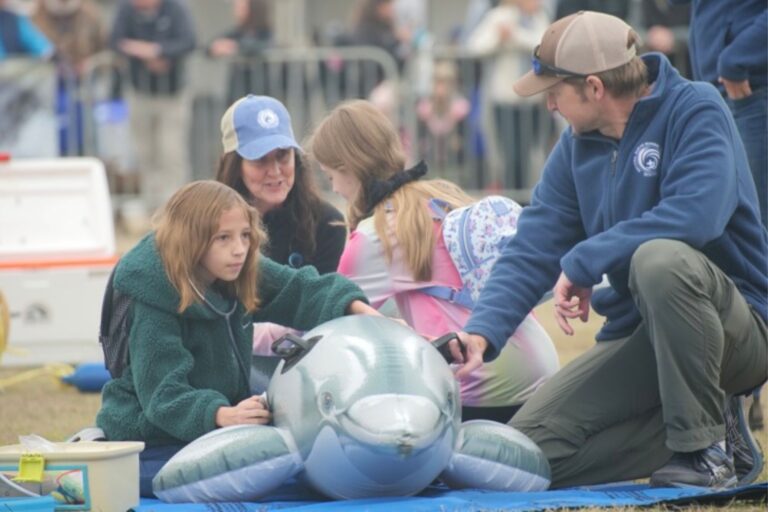Mexico recently opened its' first marine mammal rescue center to assist marine wildlife in jeopardy.
Museo de la Ballenas‘ ‘Centro de Rescate’ is the only rescue center in the country and the first facility solely devoted to the rescue, rehabilitation and release of stranded, injured, sick, and entangled marine wildlife.
Located in La Paz, Baja California Sur, Centro de Rescate has a unique position to assist the abundant marine wildlife from both the Pacific coast of Baja California and the Gulf of California, as well as receive patients from all over Mexico. Situated on the Sea of Cortez, just inside the tip of the Baja Peninsula, the waters of La Paz boast an incredible 35 species of marine mammal, and five species of sea turtle. Jacques Cousteau himself called La Paz the ‘Aquarium of the World’, and for good reason. The neighboring islands and the hundreds throughout the Gulf make La Paz a mecca for marine wildlife.
Ricky Rebolledo, the Director of Operations for Centro de Rescate, states “Our geographic position is optimal because we are in a biologically productive area and the access to both coasts puts us in a very strategic position to help numerous species that not only reside here and throughout the Gulf of California, but visit us on their lengthy migrations.”
A native of Mexico, Rebolledo has worked as a marine mammal specialist and conservation officer for more than 25 years.
With his primary focus being marine mammal conservation, Rebolledo has been involved in numerous projects with global conservation implications, including VaquitaCPR, and feels honored and proud to develop and operate this new rescue center.

Centro de Rescate is most effective with the cooperation and assistance of a number of local and international organizations devoted to the same cause.
Rebolledo says it’s a big undertaking and one that not he, nor anyone else, can handle alone. Centro de Rescate is most effective with the cooperation and assistance of a number of local and international organizations devoted to the same cause; to conserve and protect marine wildlife. “We work closely with a network of organizations, agencies, researchers, fishermen, tour operators, and citizen scientists who share our mission.
We are committed to fostering these relationships so that we may collaborate and join forces to protect our marine wildlife and promote stewardship of our natural resources for future generations.” Additionally, Centro de Rescate operates with permission from PROFEPA, the Mexican Government authority responsible for the protection of the environment, and emphasizes the importance of following the appropriate channels when it comes to interacting with and rescuing marine wildlife.

Every animal that arrives at the center is evaluated and a treatment plan is prepared, with the ultimate goal being released back into the wild.
The majority of patients brought to the center for treatment and rehabilitation are California sea lions, and endangered Guadalupe fur seals and sea turtles, though the occasional seal or dolphin may also end up at the facility. Centro de Rescate’s facility includes both an indoor and outdoor rehabilitation area and a small auditorium for training and education programs.
The indoor rehabilitation area houses up to 3 large pools (13,000-15,000 gallons each) and is outfitted with air-conditioning and HEPA air filters. The indoor pools are connected to state-of-the-art aquatic life support systems to provide optimal water quality, critical for animal health, particularly in compromised patients. These pools can be used for pinnipeds, cetaceans, and sea turtles. This facility and equipment was provided by VaquitaCPR following the 2017 vaquita rescue efforts.

The rescue center's outdoor rehabilitation area is used as a pinniped holding facility for seals and sea lions.
Enclosed dry pens are specifically designed to manage patients in any condition and can accommodate small pools to give stable animals access to water for feeding and enrichment. Prior to release, animals may be given access to one of the larger pools for a period to help physically recondition them for release.


“It is our compromise and responsibility to use our knowledge to help lessen the effects of human impacts on wildlife. Time is critical for many species, and we work with a vision and hope that by sharing information, as part of a global network of conservation, we can minimize these impacts.”
In the meantime, Ricky Rebolledo and his super team will keep saving Baja's marine life one animal at a time.

Centro de Rescate was established with support and funding from the Museo de la Ballena, support from VaquitaCPR, and the National Marine Mammal Foundation. The continued operation and success of the rescue center depends on contributions and in-kind donations from fellow ocean lovers.
Follow Centro de Rescate on Instagram (@centro_de_rescate) and Facebook (Centro de Rescate MB). Donate or shop their wish list, and stay tuned for events.





